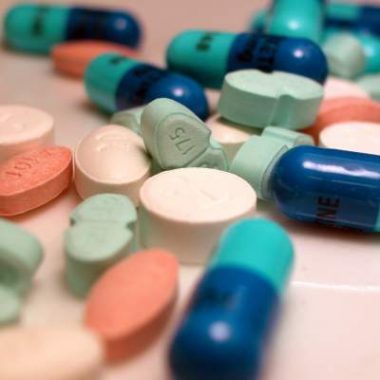Plans to transport medicine in the event of a no-deal Brexit must be reactivated ‘within the next days or weeks’ to prevent shortages, NHS chief executive Simon Stevens has said.
Speaking before the Health and Social Care Committee in the Commons last week (25 June), Mr Stevens said it is ‘critical’ that transport plans are reactivated as the NHS is ‘completely dependent’ on additional cross-ferry links.
Supply arrangements for a no-deal scenario were put on hold across the Government and public sector on 26 April, he added.
Mr Stevens told the committee: ‘Our view is that if the country wants to be ready for the possibility, however remote, of no-deal on 31 October then it is critical that the transport logistics links are reactivated very quickly.
‘The NHS is completely dependent on the additional dedicated cross-ferry capacity.
‘If that’s going to be available in time for 31 October, the Government has got to push the button on those additional contracts…within the next several days or weeks.’
Mr Stevens was asked by the committee if it would be too late to meet the October deadline seeing as the Prime Minister replacing Theresa May will be appointed on 23 July. He answered by saying it would not necessarily be too late, but decisions need to be made ‘sooner rather than later.’
He continued: ‘I’m not saying it would be too late, but I’m saying it would be advisable to make a decision as to how to get that capacity sooner rather than later.
‘But there’s no prospect that a decision is going to be made on no-deal until after the new Prime Minister has started.
‘I’m not saying make a decision on no deal, I’m saying make a decision on the contingency planning to ramp up the cross channel or ferry-dedicated capacity for health supplies.’
Mr Stevens said the previous plans undertaken by the Department for Transport (DfT) were ‘done in quite a [condensed] timescale, with various issues that arose as a result’.
He did not comment on the cost of creating the contingency plans the previous time and said it was a matter for the DfT to answer.
However, Mr Stevens stressed the NHS’ reliance on dedicated shipping and airplane capability to ensure supply chains for health supplies.
He said: ‘By the time we got to 29 March, we had about 400 NHS organisations that were either green or amber, with a clear plan to get to green so we were feeling pretty confident of the NHS elements of the operations. But as I said, we were reliant on the dedicated shipping capability and airplane capability that was in place, and we need those same two channels to be available for us if the possibility is of a no deal Brexit.’
Last year, GPs were warned not to prescribe longer prescriptions or stockpile medicine ahead of Brexit.
GPs told Pulse in a recent survey their workload is increasing due to dealing with requests for medicines switches, all because of common drug shortages.

















